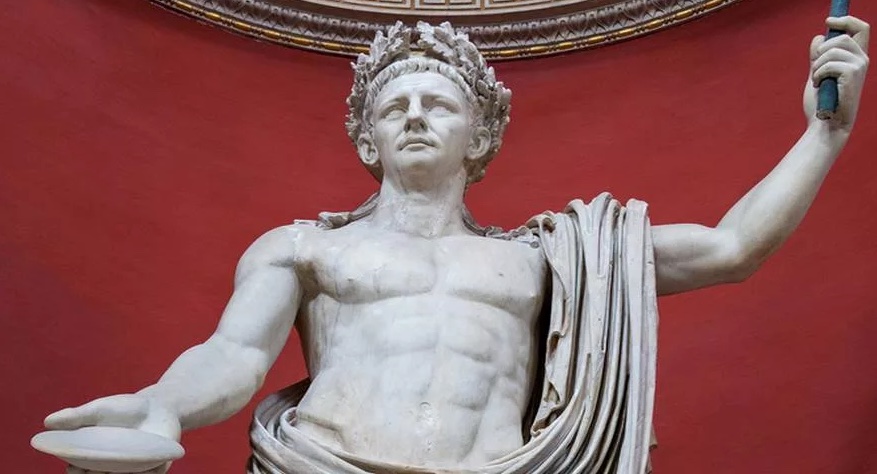The reign of Claudius, the fourth Emperor of Rome, is a fascinating chapter in the annals of Roman history. Often overshadowed by his predecessors and successors, Claudius' rule marked a period of significant transformation and intrigue within the Roman Empire. In this comprehensive article, we delve into the life, reign, accomplishments, and challenges faced by Claudius, shedding light on the enigmatic figure who ascended to the imperial throne during a tumultuous era.
Early Life:
Born in 10 BCE, Claudius was the son of Nero Claudius Drusus, a prominent Roman general, and Antonia Minor, the niece of Emperor Augustus. Despite being afflicted by physical disabilities and perceived intellectual shortcomings, Claudius possessed a keen intellect and a deep passion for scholarly pursuits. His early years were marked by relative obscurity, as he lived in the shadow of his more illustrious family members.
Claudius' fortunes changed dramatically in 41 CE when his nephew, Emperor Caligula, was assassinated, plunging Rome into political turmoil. Despite his apparent disinterest in politics, Claudius was unexpectedly declared Emperor by the Praetorian Guard, who sought a figurehead to restore stability to the empire. Thus, at the age of 50, Claudius ascended to the throne, becoming one of Rome's most unlikely rulers.
Domestic Policies:
Despite initial doubts about his suitability for leadership, Claudius quickly proved himself to be a capable and reform-minded emperor. He initiated a series of domestic policies aimed at improving the welfare of the Roman people and strengthening the foundations of the empire. Claudius embarked on ambitious public works projects, including the construction of roads, aqueducts, and bridges, which facilitated trade and communication throughout the empire.
One of Claudius' most significant reforms was the expansion of Roman citizenship to inhabitants of the provinces, a move aimed at fostering unity and integration within the diverse territories under Roman rule. He also implemented legal reforms, including the codification of Roman law and the establishment of a more efficient judicial system, which enhanced the administration of justice throughout the empire.
Military Campaigns:
Claudius' reign was characterized by military campaigns aimed at expanding and consolidating Roman control over its vast territories. One of his most notable conquests was the annexation of Britain in 43 CE, which brought the island under Roman rule for the first time. Claudius personally led the invasion, earning the title "Britannicus" in recognition of his triumph.
In addition to his military endeavors in Britain, Claudius also launched campaigns against various Germanic tribes along the empire's northern frontier, further securing Rome's borders and asserting its dominance in the region. These military successes bolstered Claudius' reputation as a capable commander and strengthened his grip on power within the empire.
Challenges and Controversies:
Despite his achievements, Claudius' reign was not without its challenges and controversies. His marriage to his niece, Agrippina the Younger, and her subsequent machinations to secure the succession for her son, Nero, raised concerns among the Roman elite and fueled rumors of intrigue and betrayal within the imperial court.
Claudius' decision to elevate Nero as his heir proved to be a fateful one, as Nero's reign would ultimately end in disaster, marked by tyranny, extravagance, and rebellion. Claudius himself met a mysterious end in 54 CE, allegedly poisoned by Agrippina in her bid to ensure Nero's ascension to the throne.
Legacy:
Despite the controversies surrounding his reign and the manner of his death, Claudius left a lasting legacy on the Roman Empire. His administrative reforms, infrastructure projects, and military conquests contributed to the stability and prosperity of Rome during a critical period of its history. Claudius' reign demonstrated that effective leadership could emerge from unexpected quarters, challenging conventional notions of power and authority in ancient Rome.
The reign of Claudius stands as a testament to the complexities of imperial rule and the unpredictable nature of politics in ancient Rome. Despite facing numerous challenges and controversies, Claudius' legacy endures as that of a capable and pragmatic ruler who left an indelible mark on the history of the Roman Empire. In studying Claudius' reign, we gain valuable insights into the dynamics of power, governance, and ambition in one of the greatest civilizations of antiquity.





